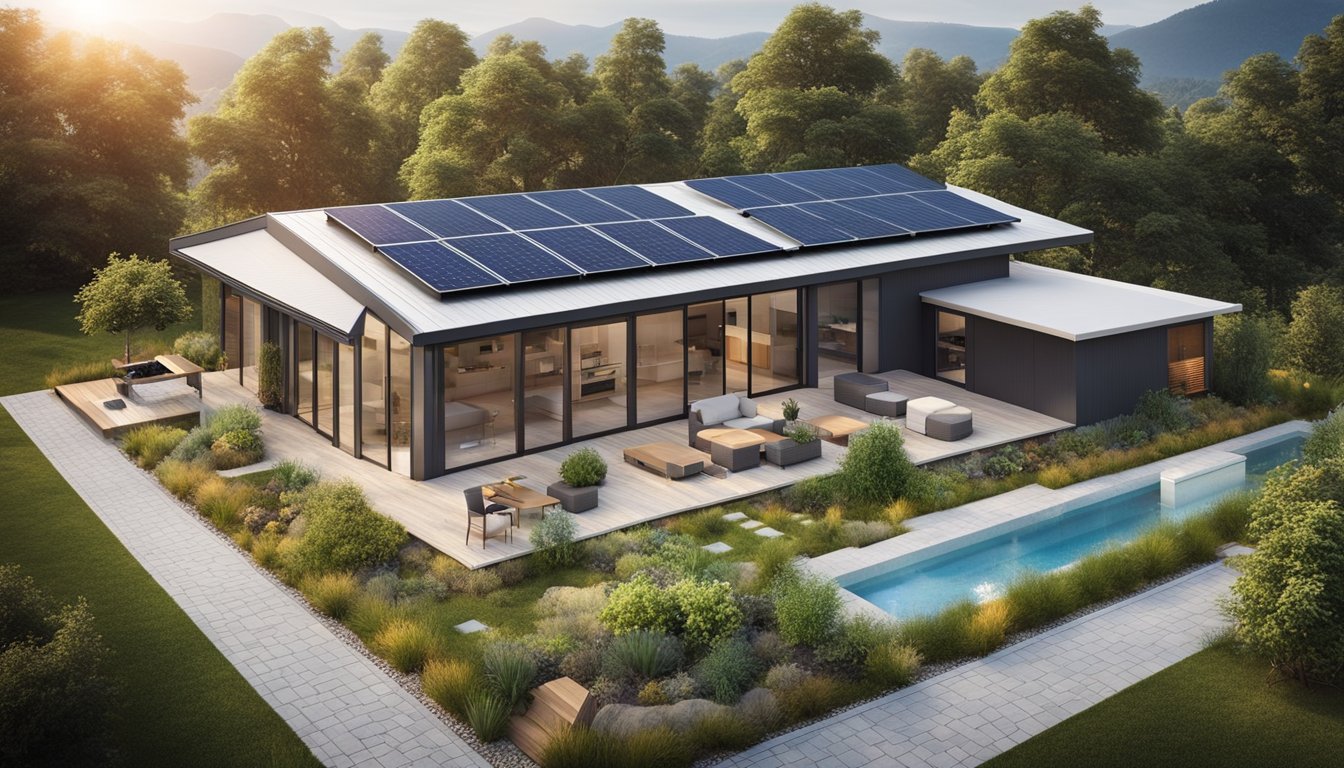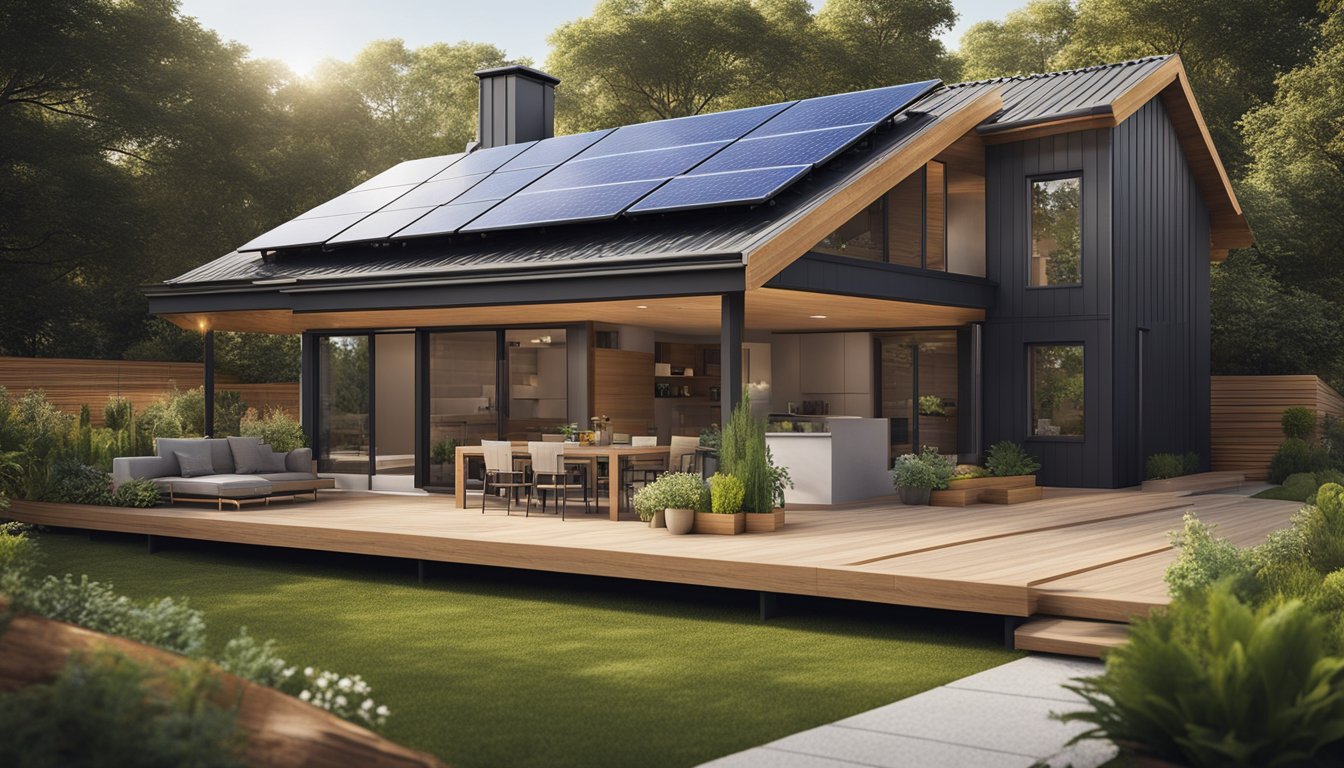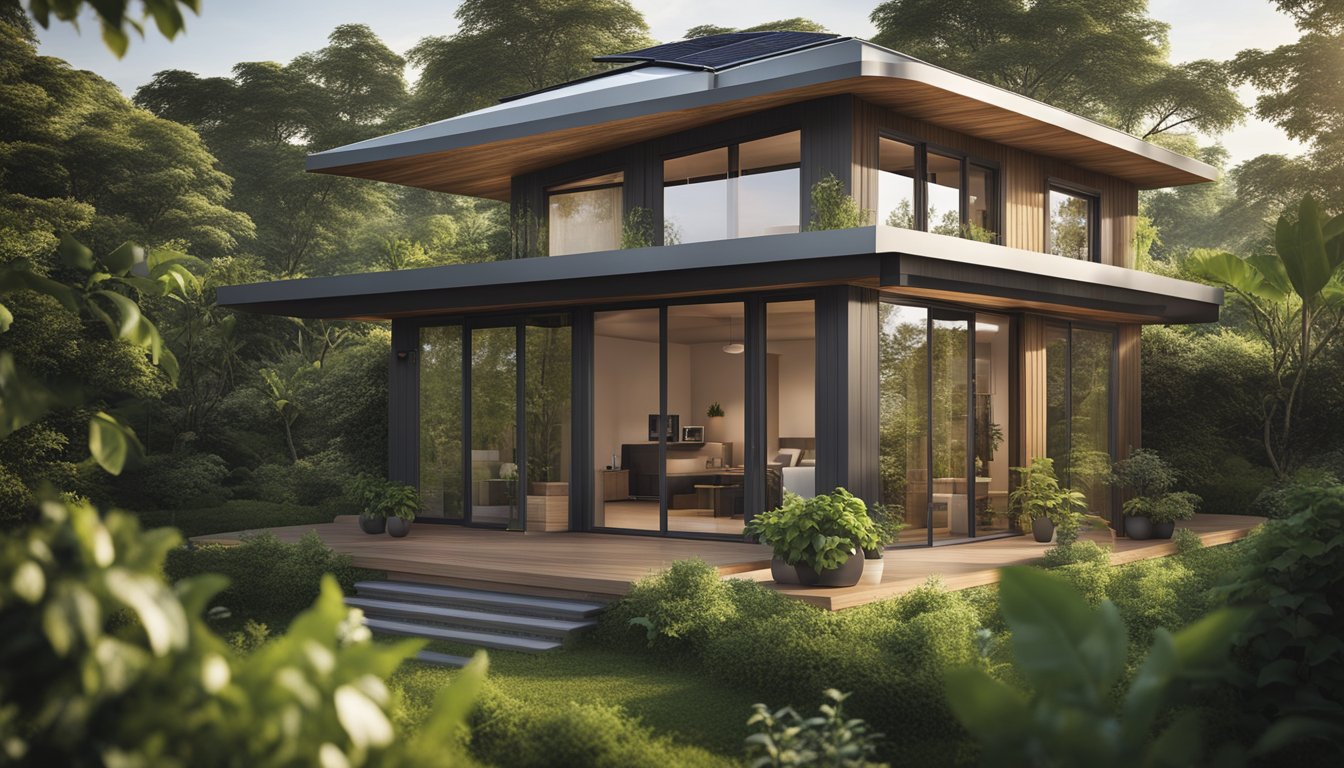Late updated: 11 Jul 2024 11:07
Written by: Daniel Harper
Benefits Of Sustainable Home Renovation Practices: Enhancing Efficiency and Value
Embarking on a sustainable home renovation journey offers more than just an updated living space. By incorporating eco-friendly practices, we enhance our homes’ aesthetic appeal while fostering environmental well-being. Sustainable materials and energy-efficient technologies not only reduce our carbon footprint but also result in long-term cost savings through decreased energy bills.

Utilising recycled, reclaimed, or renewable materials plays a significant role in sustainable renovations. This approach reduces environmental damage and promotes healthier indoor spaces. Furthermore, embracing sustainability in home improvement supports ethical practices in production and sourcing, ultimately contributing to the larger goal of preserving our planet.
By choosing sustainable renovation practices, we can create living spaces that are both stylish and beneficial for the planet. Through reduced waste, energy consumption, and the use of sustainable materials, we pave the way for a future where our homes serve as symbols of environmental responsibility.
Key Takeaways
- Sustainable renovations minimise environmental impact and reduce energy costs.
- Choosing eco-friendly materials promotes healthier indoor environments.
- Ethical practices in sourcing materials contribute to global sustainability.
Essential Components of Sustainable Home Renovations
To truly embrace sustainable home renovations, it’s vital to focus on materials choice, energy and water efficiency, and indoor environmental quality. These elements not only contribute to eco-friendly practices but also enhance the comfort and health of the home.
Choosing Materials
Opting for sustainable materials is central to green renovations. We should prioritise eco-friendly building materials like bamboo, cork, and reclaimed wood. These options are renewable, reduce waste, and often have a smaller carbon footprint compared to conventional materials.
Recycled materials such as glass or metal also play a crucial role. By reusing existing resources, we minimise waste and reduce the demand for new raw materials. It's equally essential to select non-toxic materials to maintain healthy indoor air quality, reducing exposure to harmful chemicals.
Energy and Water Efficiency
Increasing a home's energy efficiency is a fundamental aspect of sustainable living. Insulation improvements are a priority, ensuring heat retention in winter and cooler interiors in summer. In addition, installing energy-efficient windows and solar panels can significantly cut energy consumption.
Energy-efficient appliances like refrigerators and washing machines help reduce household power usage. Water efficiency can be enhanced by incorporating low-flow fixtures in bathrooms and kitchens, as well as rainwater harvesting systems for irrigation. These practices support both energy and water conservation, making our homes more resource-efficient.
Indoor Environmental Quality
Indoor environmental quality is critical for both health and sustainability. We should use low-VOC paint to avert toxic emissions, improving indoor air quality. Proper ventilation systems are also essential. They ensure the circulation of fresh air, reducing pollutants and moisture.
Maximising natural light can uplift the home’s ambience while reducing the need for artificial lighting. This not only conserves energy but also creates a more pleasant indoor environment. Selecting non-toxic materials and ensuring a bright, well-ventilated space promotes a healthy and sustainable living environment.
Advantages of Eco-Friendly Home Renovations

Eco-friendly home renovations offer numerous benefits, including enhanced property value, positive environmental and health impacts, and significant financial incentives and savings. Let's explore each advantage in detail.
Enhanced Property Value
Eco-friendly renovations can significantly boost property value. Buyers today are increasingly interested in sustainable building practices and energy-efficient features.
Homes with these improvements often command higher property values. Energy-efficient appliances and systems, such as solar panels and high-efficiency HVAC units, make homes more attractive.
Additionally, sustainable materials like bamboo flooring and recycled countertops contribute to modern aesthetics, further increasing market appeal.
Investing in green upgrades not only improves living conditions but also ensures a higher return on investment when it's time to sell. In a competitive real estate market, a sustainable home stands out, enhancing both marketability and sale price.
Environmental and Health Impacts
Eco-friendly home improvements contribute to a reduced environmental footprint. Implementing energy-efficient solutions decreases greenhouse gas emissions and lowers overall carbon footprints.
These renovations often lead to a healthier living environment. By using low-VOC (volatile organic compounds) paints, non-toxic building materials, and efficient air filters, we can significantly improve indoor air quality.
A healthier home environment translates to better respiratory health and overall well-being. Sustainable lifestyles foster responsible living, ensuring that we do our part to protect the planet while benefiting our own health.
Financial Incentives and Savings
One of the most compelling advantages of sustainable home renovation practices is financial savings. Energy-efficient updates can lead to lower utility bills, reducing monthly expenses.
Various government programmes and incentives make the financial aspect even more appealing. Homeowners may be eligible for tax credits or rebates, offsetting initial renovation costs. These incentives make eco-friendly choices financially sensible within any budget.
Long-term cost savings are also a significant factor. Over time, energy-efficient systems and materials pay for themselves through reduced energy consumption, making them wise investments for the future.
By embracing eco-friendly home improvements, we not only save money but also contribute to a sustainable and financially sound lifestyle.
Frequently Asked Questions

Sustainable home renovation practices offer myriad benefits, from enhancing energy efficiency to having a positive impact on national housing conditions. By exploring the following key points, we can gain insight into the specific advantages and practical implications of embracing eco-friendly construction.
What are the key advantages of incorporating green technology in construction?
Green technology enhances energy efficiency, reducing utility costs.
It also incorporates renewable energy sources, such as solar panels, which decrease dependence on non-renewable resources.
How do environmentally friendly building materials contribute to sustainability?
Using recycled or locally sourced materials reduces waste and transportation emissions.
These materials often have a smaller environmental footprint, contributing to a healthier ecosystem.
What are the long-term benefits of constructing a green home?
Green homes generally have lower operating costs due to energy savings.
These homes often require less maintenance and are built for durability, ensuring lasting value.
In what ways does eco-friendly construction impact the environment positively?
Eco-friendly construction minimises waste through efficient design and recycling practices.
It also reduces greenhouse gas emissions by leveraging sustainable materials and technologies.
How does sustainable renovation contribute to energy efficiency in homes?
Energy-efficient fixtures and appliances reduce electricity and water consumption.
Insulation and smart designs help regulate indoor temperatures, lowering heating and cooling costs.
What positive effects does sustainable housing have on national housing conditions?
Sustainable housing can improve public health through better air quality and reduced pollution.
It also supports economic growth by creating jobs in green construction and technology industries.
